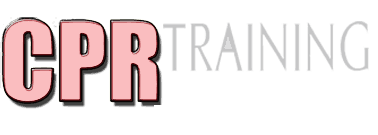Drug overdose occurs when an individual takes more than the recommended amount of particular medication/s that may result to serious symptoms or even death.
Drug overdose occurs when an individual takes more than the recommended amount of particular medication/s. It is either classified as intentional or deliberate when a person takes too much medications on purpose or accidental, when the overdose occurs as a mistake. When the drugs are swallowed, it is called an ingestion drug overdose. Drugs can also be inhaled, injected or absorbed through the skin.
Drug overdose should not be confused with drug poisoning despite similarities in effects. Drug poisoning occurs when someone or something (e.g. environment) exposes an individual to toxic plants, chemicals and other harmful substances without one’s knowledge. Even so, if drug overdose or drug poisoning not treated immediately, it can result to serious, life-threatening symptoms or even death.
Commonly Overdosed Drugs
Drug overdose doesn’t just occurs from taking too much illegal drugs. In fact, overdose of prescription drugs are also quite common. The following are the most commonly overdose drugs
- Pain medications, such as paracetamol, aspirin, etc.
- Prescription painkillers, such as methadone, oxycodone, and other opiates
- Sedatives and antidepressants, such as valium
- Heroin
- Methamphetamine
- Cocaine
- Combination of drugs
Causes of Drug Overdose
Drug overdose is either intentional (deliberate) or accidental:
- Intentional or planned overdose
- To bring harm upon self or suicide attempt
- To gain attention on self
- To get sensation of “highness”
- To abuse child
- Accidental or unplanned overdose
- Mistaking pills for candies or ingesting for curiosity (common in infants and young children)
- Taking an incorrect mediation or taking wrong doses of the right medication
- Taking more than the recommended dosage unknowing that it is already beyond dosage
- Taking multiple medications due to persistence of symptoms
Signs and Symptoms of Drug Overdose
Drug overdose may be mild, moderate or serious, depending on the type of drug and how much of the drug is in the body. Moreover, people respond differently to drugs. Some people are more sensitive to particular drugs, causing more symptoms at lower dosages
- Change in temperature, blood pressure, pulse rate, and respiratory rate
- Dyspnea
- Chest pain
- Abdominal pain
- Nausea and vomiting, possibly bloody
- Diarrhoea, possibly bloody
- Cool or sweaty, or hot and dry skin
- Sleepiness
- Confusion
- Loss of consciousness
First Aid Management for Drug Overdose
Treatment for drug overdose will be tailored accordingly to the needs of an individual. Some first aid trips recommended in cases of drug overdose include:
- Immediately call for emergency medical service if the individual has collapsed or stopped breathing.
- Initiate CPR if the individual has weak breathing or is not breathing at all.
- If no symptoms are present, call Poison Control immediately and they will advice on how to continue.
- Do not force the individual to vomit, nor should food or beverages be given.
- Bring the overdosed drug or empty bottle to the emergency room or doctor’s office or give to the emergency team.
Disclaimer: This article does not provide medical advice and should not be substituted for formal training. The information given should not be used for self-diagnosis. Seek medical attention when necessary. It is important to recognise medical emergencies at all times to avoid complications from developing. To learn more about to how to properly manage drug overdose, enrol in first aid and CPR training with credible providers.
Online Sources:
http://firstaid.webmd.com/drug-overdose-treatment
http://regretfulmorning.com/2011/08/the-7-most-common-drugs-people-overdose-on/
